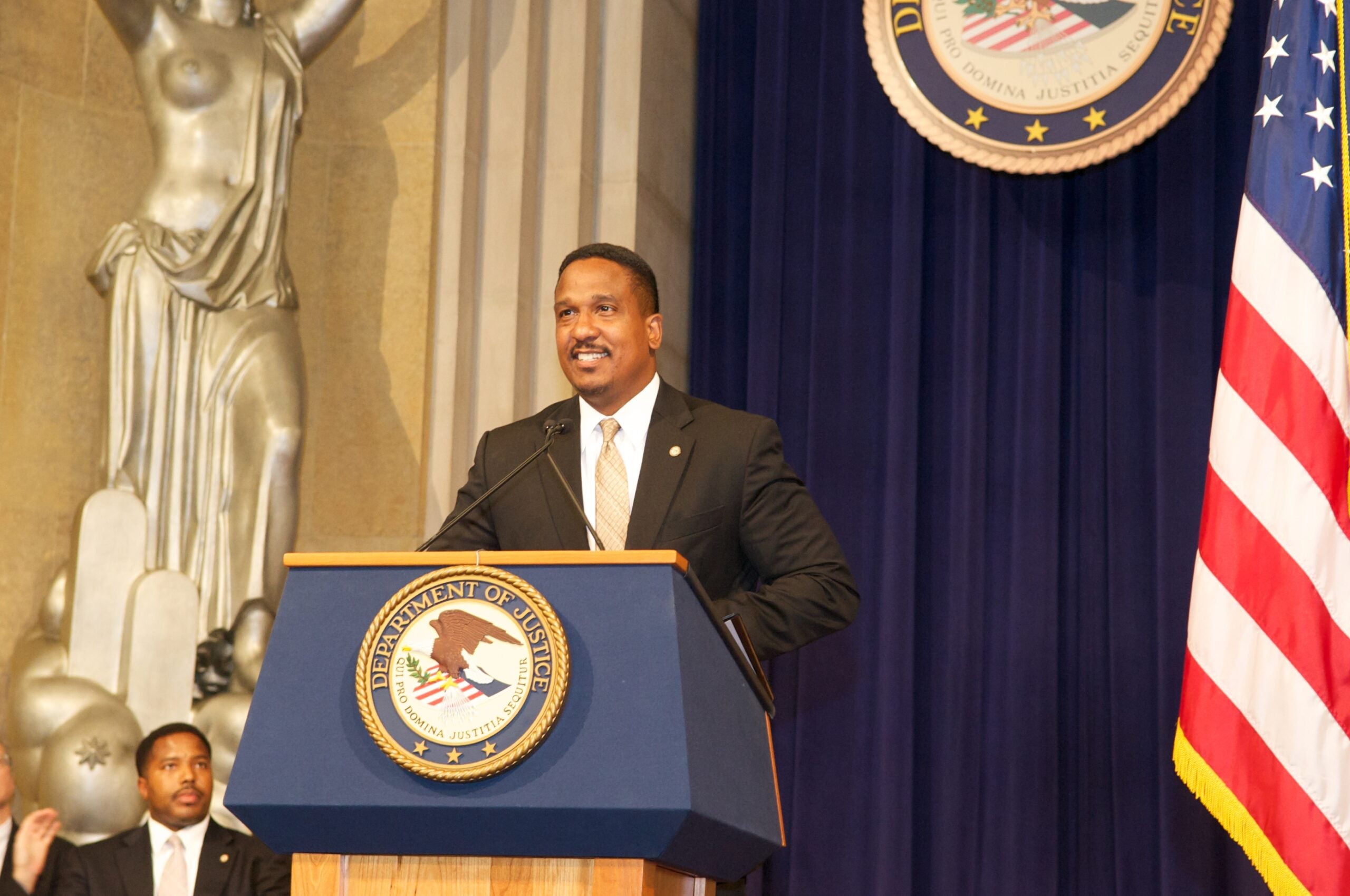At the helm of the nation’s largest U.S. attorney’s office
June 8, 2012, was a particularly busy day for Ronald Machen Jr. ’94, U.S. attorney for the District of Columbia. U.S. Attorney General Eric Holder named Machen to oversee investigations into the leaking of national security secrets to the press. In D.C. Superior Court, 71 defendants made their first appearances on charges that ranged from assault with the intent to murder, to sexual abuse and numerous drug crimes. Machen also held a press conference to announce guilty pleas made by former D.C. City Council Chair Kwame Brown, for bank fraud and campaign finance violations.
Brown’s conviction was among at least 78 others stemming from Machen’s office’s investigations of public officials since 2010.
“Corruption happens everywhere, as individuals lose their way, get caught up and make terrible decisions,” says Machen, 43, who lives in Washington, D.C., with his wife and three sons, ages 8, 11 and 22. “They let people down and betray their office.”
Machen’s confirmation by the U.S. Senate in February 2010 brought him back to the office where he got his start as a prosecutor in 1997. He now runs the nation’s largest U.S. Attorney’s Office, with about 300 attorneys who prosecute both federal and local crimes and handle a range of civil matters. (In fiscal 2011, the office collected $138.6 million in civil actions.)
Machen first joined the office after a stint at the D.C. firm Wilmer, Cutler, Pickering, Hale and Dorr and a clerkship on the 6th Circuit. He returned to WilmerHale to build his criminal defense experience, become partner and earn enough money to pay off his law school loans.
When the U.S. attorney’s job opened up in 2009, Machen sought the recommendation of Eleanor Holmes Norton, D.C.’s delegate to the House of Representatives, who submitted his name to President Barack Obama ’91.
While an assistant U.S. attorney, Machen took pride in being able to prosecute a variety of crimes. As U.S. attorney, he has come to appreciate specialization as a way to build expertise and efficiency.
“I have been a strong advocate of this approach, assigning prosecutors to develop specific areas of expertise, such as investigating matters involving counterespionage, national security leaks, public corruption and health care fraud,” he says.
The D.C. corruption cases were among an estimated 20,000 handled annually by Machen’s staff. National security cases have taken his prosecutors to 25 nations, securing indictments involving U.S. exports to Iran, espionage in Cuba and the drug wars in Mexico.
To curb local crime, his office has stepped up prosecution of local gangs, which have terrorized many D.C. neighborhoods. He formed a gang unit within his homicide section, so his office can act expeditiously to stop violence before it escalates.
“Our office needs to understand the D.C. culture, with one gang controlling one block, and another gang controlling the next,” he says. “Someone could get disrespected at a party, and you find yourself in the middle of a gang war. Having our unit puts us in a better position to move quickly.”
He and his staff also devote time to community outreach, with Machen hosting an annual youth summit and holding town meetings at local churches. “It helps build credibility and trust among the citizens who we are trying to serve and who we need to make these cases,” he says.
Growing up in the Detroit area, Machen arrived at Harvard after graduating from Stanford University, where he played wide receiver for the football team. He was introduced to the skills of successful trial lawyers in classes taught by Professor Charles Ogletree ’78.
“You saw how much skill it took to be persuasive and good on your feet,” says Machen. “But I wasn’t sure I wanted to be a trial lawyer.”
Ogletree, who addressed prosecutors in Machen’s office about ethics this summer, says his former student’s sense of fairness has served him well.
“It takes brilliance, a thick skin, tolerance, and vision to win cases and do justice,” says Ogletree. “Ron has been successful because he has both goals in mind.”
